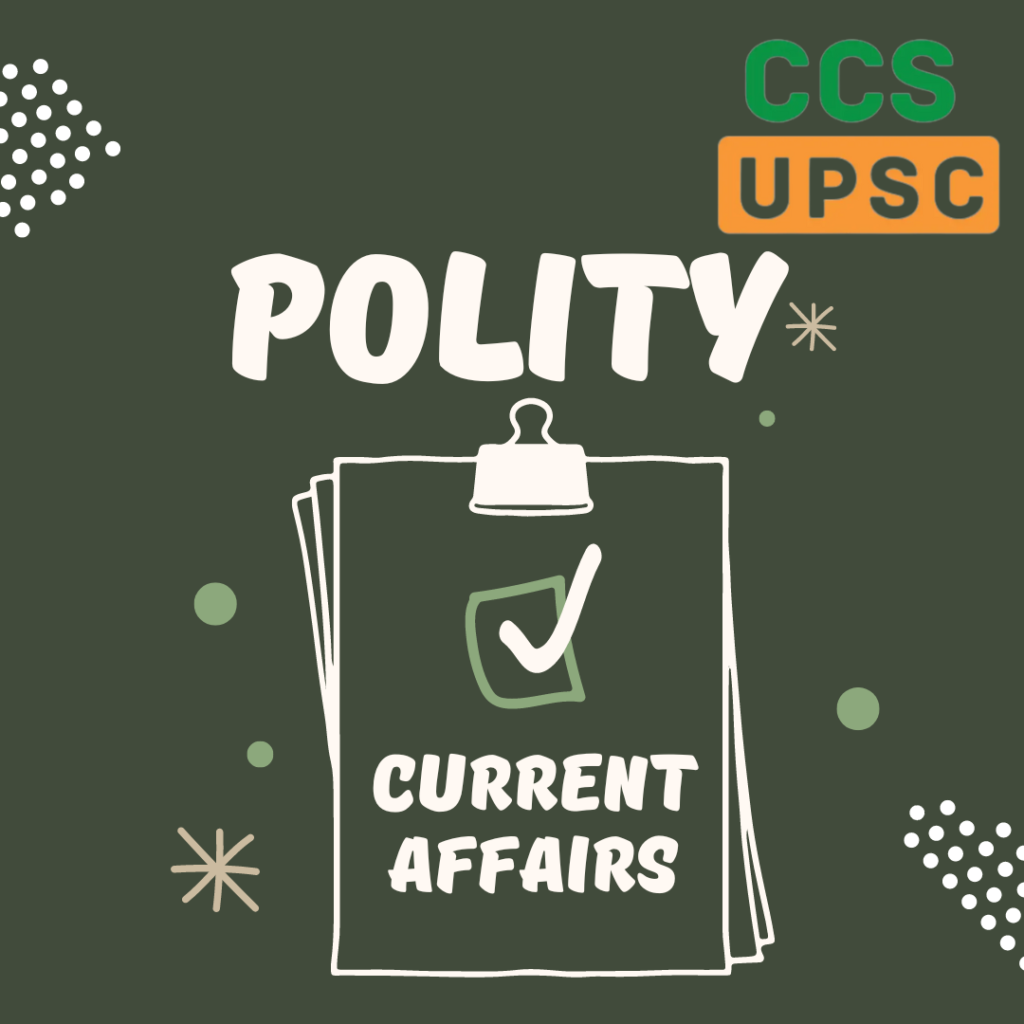Context
The Ministry of Home Affairs has allocated Rs 20 crore for providing financial assistance to poor prisoners, who could not afford their bail money and continue to languish in jail.
About
∙ In a communication to all states, the MHA said that each state should open a dedicated account for seamless flow of funds from the Central government to state headquarters so that the funds could be disbursed to the needy.
∙ ‘Empowered Committee’, with the assistance of District Legal Services Authority and prison authorities, shall examine cases of eligible prisoners and shall have the power to sanction the amount required for paying fine or bail.
∙ All states and UTs were also asked to constitute ‘Empowered Committees’ in all districts and an ‘Oversight Committee’ at the state or UT headquarters level and appoint a nodal officer who may engage with the Central Nodal Agency (CNA) – National Crime Records Bureau.
Issues Related to Prisons in India
∙ India’s prison system forms a backbone of its criminal justice system. It faces several challenges despite ongoing reform efforts.
∙ Overcrowding: Indian prisons are severely overcrowded, often exceeding their capacity by 100% or more and going as high as 177% in States like UP.
∙ This leads to inadequate living conditions, sanitation issues, and increased risk of violence and disease.
∙ Under-trial population: A significant portion (76%) of the prison population comprises undertrials awaiting trial, often for extended periods due to judicial delays.
∙ This raises concerns about the presumption of innocence and prolonged incarceration without conviction.
∙ Inadequate infrastructure and facilities: Many prisons lack basic amenities like proper ventilation, sanitation, healthcare facilities, and educational opportunities, hindering rehabilitation and reintegration efforts.
∙ Social stigmas: Caste based segregation in prisons of India has been found, where dalits have separate wards and manual work is allotted on caste hierarchies.
∙ Shortage of staff: Prisons are often understaffed, leading to challenges in maintaining order, providing proper care for inmates, and implementing rehabilitation programs effectively.
∙ Mental health concerns: A substantial number of inmates struggle with mental health issues, requiring specialized care and support often unavailable within prisons.
Government Steps
∙ All India Committee on Jail Reforms (Mulla Committee) 1980: The committee recommended measures to expedite trials and decongest prisons, focus on rehabilitation and reintegration, programs for skill development, education, and mental health support for inmates, uphold the human rights of prisoners and improved training and professionalization of prison staff.
∙ National Policy on Prisons, 2000: This policy emphasizes the need for humane conditions, rehabilitation, and reintegration.
∙ Model Prison Manual 2016: Outlining guidelines for the administration of prisons and the management of prisoners it aims to ensure humane conditions, uphold human rights, and promote the reformation and rehabilitation of inmates.
∙ Modernisation of Prisons’ Project (FY 2021-2026): With a financial outlay of Rs. 950 crore, aimed at modernizing the prison equipment and strengthening the security infrastructure in the jails of the country.
∙ Model Prisons and Correctional Services Act, 2023: The Act mainly focuses on keeping the criminals in custody and enforcement of discipline and order in prisons.
∙ Support to poor prisoners’ scheme 2024: Aimed at helping prisoners belonging to socially disadvantaged and low-income groups who do not have the financial means to pay their bail surety or fine amount to secure their release.
Measures
∙ Decongestion measures: Implementing fast-track courts, plea bargaining, and parole schemes to reduce the under-trial population and overcrowding.
∙ Focus on rehabilitation: Implementing programs promoting positive behavior change, anger management, and reintegration support to reduce recidivism rates.
∙ In Rajasthan’s ‘open prisons’ model, prisoners who have served one third of their sentences are eligible to shift to the open jails.
∙ Collaboration: Fostering collaboration between government agencies and civil society organizations to leverage expertise and resources for effective reform implementation.
∙ Law students along with NHRC helping Prisoners with Bail pleas in Delhi.
∙ Improved infrastructure: Upgrading prison facilities to ensure basic amenities, proper sanitation, and healthcare services.
∙ Skill development and education programs: Providing inmates with opportunities to learn new skills and educational qualifications to improve their employability upon release.
∙ Sensitization of prison staff: Training prison staff on human rights, mental health awareness, and effective communication skills for better interaction with inmates.
| Related Supreme Court Judgements– Charles Sobhraj v. Superintendent, Central Jail, Tihar (1978): This case emphasized the need for prisoner rights, including proper living conditions and medical care.– Upendra Baxi v. State of U.P., (1983): the Supreme Court ensured that the inmates of the protective Home at Agra did not continue to live in inhumane and degrading conditions and that the right to live with dignity enshrined in Article 21 of the Constitution was made real and meaningful for them.– Hussainara Khatoon (IV) Vs. State of Bihar 1979: The right to free legal services is an essential ingredient of reasonable, fair and just procedure, guaranteed under Article 21, for a person accused of an offence.– State of A.P. Vs. Challa Ramkrishna Reddy & Ors. (2000): the Supreme Court held that a prisoner is entitled to all his fundamental rights unless his liberty has been constitutionally curtailed.– R.D. Upadhyay vs. State of A.P. & Ors 2006: Children in jail are entitled to food, shelter, medical care, clothing, education and recreational facilities as a matter of right.– Rattiram v. State of M.P. (2012): The accused is entitled to a speedy trial. The whole purpose of a speedy trial is intended to avoid oppression and prevent delay.– Shaheen Welfare Assn. v. Union of India 1996: The undertrial prisoners charged with murder can be released on bail if their cases were pending for two years or more. |
Way Forward
∙ Sustained commitment: Continued political will and budgetary allocation are crucial for implementing and sustaining reform initiatives.
∙ Monitoring and evaluation: Establishing robust mechanisms to monitor progress, evaluate the effectiveness of implemented reforms, and make necessary adjustments based on data and evidence.
∙


